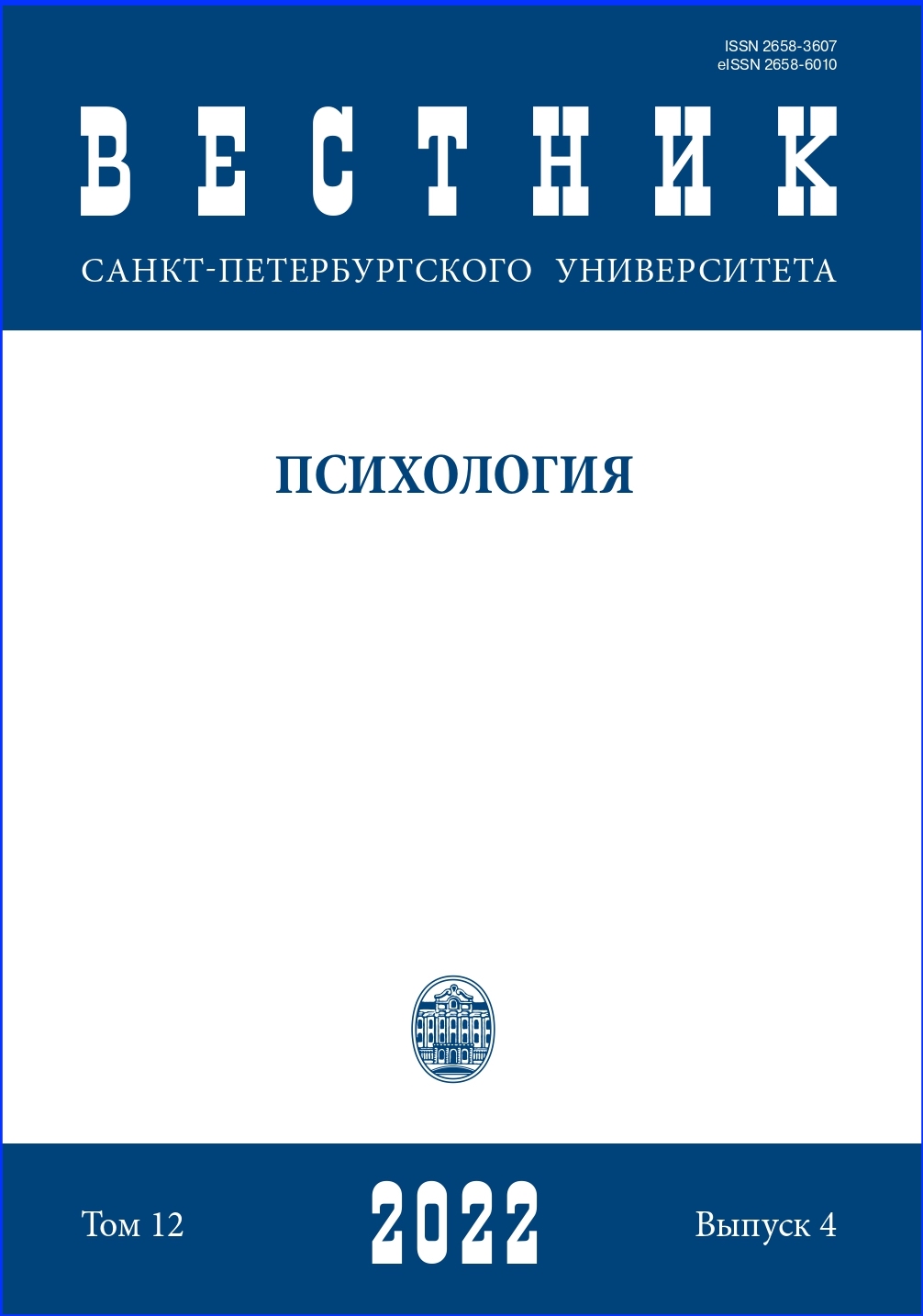Factors of a child’s social development in the senior preschool age
DOI:
https://doi.org/10.21638/spbu16.2022.402Abstract
The aim of the study was to identify the features of the cognitive and emotional development of preschoolers, which can be crucial in child’s acceptance by peers, as well as his status in the group. Were identified factors related to the sociometric status of children and those factors for which ambiguous results were obtained (for example, speech development). As part of the empirical study, there were made the assessment of language development, executive functions (subtests of the NEPSY II), emotional (Test of Emotional Comprehension) and intellectual development (Raven’s color progressive matrices). Children also passed a sociometric test by responding to a number of questions about their peers’ choice. The study involved 252 pupils of the preparatory groups of preschool educational institutions in Moscow (50.2% of boys aged 6 to 7 years (M=83.10, SD=5.74)). The three most significant predictors of social success were shown to be story programming, emotions’ awareness, and cognitive inhibitive control. The programming of the story reflects the communicative competence of the child, his ability to build a story. Emotional development (by external cases) is one of the most important indicators of his emotional development as a whole. These results indicate that the child’s social success is influenced by the development of executive functions, emotional competence, and language competence. However, different aspects of these factors affect sociometric status differently. In the future, we consider it necessary to trace how the factors, including social play, influence the social success of children in elementary school.
Keywords:
preschool education, executive functions, language development, sociometric status, understanding of emotions
Downloads
References
-Century collaboration and communication skills // Intervention in School and Clinic. 2018. No. 54 (1). P. 22–30.
References
Downloads
Published
How to Cite
Issue
Section
License
Articles of "Vestnik of Saint Petersburg University. Psychology" are open access distributed under the terms of the License Agreement with Saint Petersburg State University, which permits to the authors unrestricted distribution and self-archiving free of charge.




